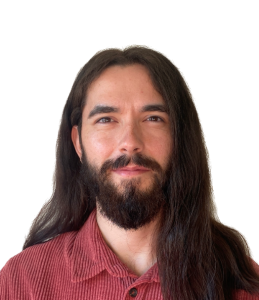Project Description
Home / Members / Graduate Students / Avery Dawson

RESEARCH AREAS:
Contemporary French Philosophy (esp. Foucault & Badiou)
Historical Epistemology (Bachelard & Cavaillès)
Phenomenology (Husserl & Heidegger)
CONTACT:
Avery Dawson
Doctoral Student
Centre for the Study of Theory and Criticism, Western University
Avery Dawson is a doctoral candidate at Western University supervised by Dr. Antonio Calcagno and Dr. James Bahoh of the University of Memphis. Originally from the United States, Avery received his BA in Sociology and BA in Philosophy at Arizona State University. Two years later, he received his MA in Philosophy in Los Angeles at Loyola Marymount University. During his PhD at Western, he has received a DAAD Summer Language award for Dresden, Germany and presented and participated in the three-week intensive 2022 Collegium Phaenomenologicum on Cosmology and Cosmopolitanism in Citta di Castello, Italy.
His interests in philosophy are wide-ranging, working mostly in the history of philosophy, with a keen interest in both analytic and continental methods.
Areas of Specialization:
- Contemporary French Philosophy
- History of Philosophy (esp. between German and French)
- Phenomenology and Rationalism
Areas of Competence:
- Early Greek Philosophy
- History of Philosophy of Science
- Necropolitics
My research very broadly concerns philosophies of the event, moving between phenomenology, ontology, and epistemology. I began my research in my MA addressing local, existential instances of “events”, upheavals or decisions which completely alter the course of one’s life. In my early research, I argued such events demanded a bidirectional method of critique that was both historical and creative. This critique, I suggested, transgressed and restructured the formal conditions of experience. This culminated in my first publications on Søren Kierkegaard and Friedrich Nietzsche. Moving forward, I began rethinking my project more fundamentally in terms of an event ontology. I sought to determine a method of critique which reposed the history of ontology in terms of events that contingently grounded ways of knowing, acting, and being in the world without recourse to a constituting subject or a single formal system (e.g., logicism). This culminated in conference presentations on the philosophy of the event between Foucault and late Heidegger. Finally, I was drawn to the way “events” were reposed in the history of philosophy of science. Through Thomas Kuhn and Gaston Bachelard, the “event”, for me, became epistemological, and pointed to exceptional revolutions or breaks within the history of science. This led me to my present research.
My current dissertation research is on the French philosophy of the Event. The 1930s French philosopher logician and mathematician, Jean Cavaillès poses an unresolved problem for French philosophy. He insists that mathematical experience is 1) incommensurable with practical life and all other sciences and 2) concerned with a wholly different singularity than the two, the rational production of mathematical content between necessity (formalization) and novelization. The applicability of the system built by Cavaillès falters on the incompatible, twofold sense of the singular: the rational singularity of mathematical, conceptual development on the one hand and the historical singularity of the physical situation on the other, as the Cavaillès scholar Matt Hare puts it. I propose that this unresolved problem of the “singular” is a problem of the event, where “event” must be thought as both a rational singularity of conceptual transformation and the historical singularity of the physical situation. I further contend that two directions of research open in response to this problem: the historicist and formalist. With my research divided into historical analysis and pragmatic application, the former concerns detailing Michel Foucault’s historicist response and Alain Badiou’s formalist response to the problem of the event. Following the shortcomings of both, the latter half of the dissertation proposes a pragmatic philosophy of the event defined by an alternative approach that synthesizes historicity and formalization, applying both to contemporary problems in phenomenology, metaphysics, and necropolitics. The three guiding concerns of my research are historical contingency (rupture), problematization and formalization (necessity), and the role of the subject.
“Death and Event” Filozofski vestnik (submitted) December 2023
“Nietzsche’s Creative Hermeneutics: On Will to Power as Interpretation.” Philosophia (June 2022). https://doi.org/10.1007/s11406-022-00539-3
Moving Forward: The Existential Motion of the Self in Kierkegaard’s Pseudonymous Works” The Heythrop Journal, vol. 63, no. 1. January 2022. https://doi.org/10.1111/heyj.13057
Review of Alan Rosenberg and Joseph Westfall (eds.), “Foucault and Nietzsche: A Critical Encounter,” Frontiers of Philosophy in China, June 2020, Vol. 15 (2): 330-335, DOI 10.3868/s030-009-020-0018-3
“Power Failure: Appearance and Change in Badiou’s Logics of Worlds”
SPEP in Toronto, ON, 2023, October 12
“The Topology of Community: Contrasting Models of Fusion and Differential Process”
Collegium Phaenomenologicum in Citta di Castello, Umbria, Italy, 2023, July 9
“A Critical Phenomenology of Affective Power: Preserving Sense as Resistance”
EPTC in York, ON, 2023. May 29
“Ereignis, Being and Rupture: Heidegger’s Contribution to the Philosophy of the Event”
Heidegger Circle in Boston, MA, USA, 2023, May 11-15
“Peering Beyond the Limit: Indirect Communication and Subversive Critique in Zhuangzi”
Conference: Académie du Midi, “Critique and Subversion”
2018, May 20-26 in Alet-le-Bains, France
Fall 2023-Winter 2024, Introduction to Philosophy, Western University
Fall 2022, Humanity, Humanities, Humanism, Inhumanity, Western University (TA)
Fall 2021 – Winter 2022, Egyptian Art and Architecture, Western University (TA)
Spring 2018, Ethics, Loyola Marymount University (TA)
Fall 2017, Symbolic Logic, Loyola Marymount University (TA)
Fall 2017, Ancient Greek Philosophy, Loyola Marymount University (TA)
Fall and Spring (Winter) 2014-15, History of Social Thought, Arizona State University (TA)
